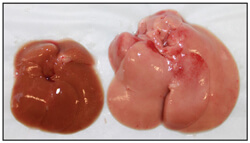
Divergent effects of resistance and endurance exercise on plasma bile acids, FGF19, and FGF21 in humans
Strength training and cardio exercise affect the body differently with regard to the types of hormones they release into the blood, new research shows. In a new study published in the scientific Journal of Clinical Investigation – Insight, the researchers show that cardio training on an exercise bike causes 3X as large an increase in the production of the hormone FGF21 than strength training with weights. FGF21 has a lot of positive effects on metabolism.
‘Of course it is very exciting for us researchers to see how different forms of physical activity actually affect the body differently...
Read More









Recent Comments